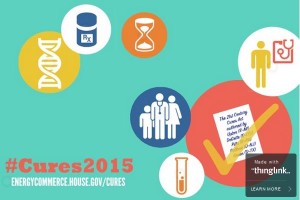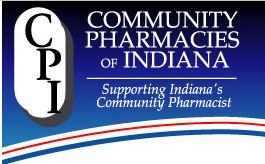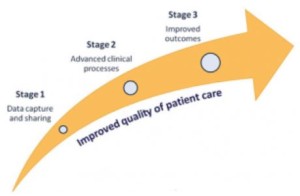- State measures to slash drug prices face big hurdles (statnews.com)
When shopping for a good deal, people usually want the same bargain as the next guy. And a group of AIDS activists is taking this approach in hopes of containing the rising cost of prescription drugs...In California and Ohio, they’re pushing ballot measures that would require state programs — such as Medicaid or prison systems — to pay no more for medicines than the Department of Veteran Affairs... “The goal [ballot initiatives] is to obtain lower prices, as well as gain more transparency on industry pricing, which is opaque,” said Ged Kenslea of the AIDS Healthcare Foundation...“And we’re hoping these will serve as a catalyst to other organizations or state legislators to enact similar measures in other states.”...well-intentioned, the effort may be somewhat quixotic...“These state initiatives might save a fistful of money in the short term and the first states where they are passed will get most of the benefit,”...“But the companies will find a way to compensate. So it isn’t likely to solve the problem in the long run.”...Still, the state initiatives may yet lead to change, if only because a groundswell of citizen-driven ballot measures might just force lawmakers to pay attention. In the end, getting a better deal might only be a vote away.
- Walgreens, CVS Want Doctors’ Medicare Pay To Vaccinate (forbes.com)Patient Access to Pharmacists’ Care Coalition (pharmacistscare.org)
As the nation’s retail pharmacies move deeper into the business of providing healthcare services, they now want pharmacists to be paid by Medicare to immunize the nation’s seniors....Under legislation that is gaining rare bipartisan support and momentum in the House and Senate, particularly for a Congressional health bill, pharmacists would be paid to administer vaccines under Medicare part B...The pharmacies have formed a coalition known as “The Patient Access to Pharmacists’ Care Coalition,” to push for the legislation, known as the Pharmacy and Medically Underserved Areas of Enhancement Act (S. 314/H.R. 592). The coalition includes retailers and grocery store chains with pharmacies such as Walgreens Boots Alliance , CVS Health, Wal-Mart, Kroger, Rite-Aid and Target...It could bring in hundreds of millions of dollars to the drugstore industry given the growing business of providing vaccinations.
- Critics continue pounding 21st Century Cures Act for threatening patient safety (fiercehealthcare.com)The last word: Will 21st Century Cures Act harm patient safety? (medicaleconomics.modernmedicine.com)21st Century Cures: What You Need to Know (energycommerce.house.gov)
Opponents argue that drugs, devices will be less safe if legislation eases FDA approval rules...Opponents of the 21st Century Cures Act, which is intended to accelerate the transfer of scientific advances in genetics into treatment for patients, say the legislation will threaten patient safety by easing FDA rules intended to protect patients from unproven therapies...Critics argue looser FDA rules will result in drug approvals without the level of rigorous testing currently required...new drugs and medical devices will be less safe and effective and cost more, and that the bill sacrifices long-term value to public health.
- State, Local Officials Push Manufacturers to Pay for Drug Disposal (realclearhealth.com)
...drug disposal is expensive — the Nebraska program spends $10 per pound to ship and destroy medication — and some states and municipalities want drug companies to pick up the tab…Six municipalities in California require drugmakers to pay for take-backs. Nine states...have considered similar measures...Proponents say these laws, which are similar to programs that require manufacturers to pay for electronics recycling, would make it easier for patients to dispose of prescriptions. But drugmakers oppose the local mandates and warn that disposal costs could be passed on to patients through higher drug prices…Alameda County in California was the first jurisdiction to pass a law requiring manufacturers to pay for take-backs, in 2012, though the industry was quick to file suit, arguing it violated the interstate commerce clause of the U.S. Constitution. The Alameda law was upheld this year when the Supreme Court refused to hear the industry’s appeal…Drugmakers would rather lead their own take-back programs than comply with local or state mandates, said Priscilla VanderVeer, of the Pharmaceutical Research and Manufacturers of America...Because drugmakers sell across the country, meeting the customized disposal requirements of local programs is complicated...There are also more effective ways to get rid of the medicines, she said, like at-home disposal or returning unwanted drugs using special envelopes with carbon lining…“That’s just a financial and logistical nightmare for something that’s not necessarily going to be effective, or secure or environmentally helpful,” she said.
- Getting the Pill Without a Doctor: The Revolution Begins (bloombergview.com)
Oregon is making hormonal birth control legally available without a doctor's prescription, and California is set to follow suit. This is great policy, and the rest of the country should follow this example...Before I explain why they should, we should dispense with the policy hopes that easier access to birth control won’t fulfill:
- It won’t end the political fight over the contraception mandate.
- It won’t end the political fights over abortion, either. Easier access to birth control is a great thing. But there is surprisingly weak evidence that making birth control easier to get substantially reduces abortion rates.
- It won’t save the health-care system any significant amount of money.
There are still very good reasons to make birth control available without a doctor visit, starting with the fact that women like it...Absent a compelling reason that women need to see a doctor, it should be as easy as possible for them to get any form of birth control they might like to have...Advocates for keeping doctors involved in dispensing birth control have historically used two arguments.
- The first is that the drugs have side effects -- which is true, but of course, also true of over-the-counter medications...
- The second argument is that we need to keep doctors involved so that women will keep coming to the gynecologist to get their annual exam and pap smear.
- Oregon greenlights pharmacist-prescribed birth control (upi.com)How Oregon Pharmacists Are Prescribing Birth Control (pharmacytimes.com)
Pharmacists in Oregon are now permitted to prescribe birth control pills to qualifying women as part of a wave of new state laws for 2016...Oregon is the first U.S. state to put such a law into effect, with California reportedly looking to follow suit...A doctor's approval is no longer needed for a supply of pills, although experts urge women not to overlook preventative health care in the form of doctor visits...having birth control accessible through a pharmacist doesn't mean preventative health care isn't important...women over age 18 will still be required to fill out a health questionnaire trained pharmacists will use to determine whether to write a prescription. Pharmacists are reportedly still free to refuse prescriptions for religious reasons, but must refer a customer somewhere else.
- The promise and peril of Ted Cruz’s plan to overhaul the drug approval process (vox.com)
Republican presidential candidate Sen. Ted Cruz and Sen. Mike Lee just introduced a new bill that would completely overhaul the Food and Drug Administration...The main idea: The senators want to expedite approvals for lifesaving drugs, give Congress space to intervene in FDA decisions lawmakers don't like, and expand the drugs and devices Americans have access to by allowing products approved in other countries onto the market...here's what the Reciprocity Ensures Streamlined Use of Lifesaving Treatments Act...would do:
- Allow for "reciprocal approval of drugs, devices and biologics" from "trusted, developed countries" like the European Union, Israel, Australia, Canada, and Japan. This means that if a drug or device is approved in one of these countries, citizens here could access it — and vice versa.
- Create a 30-day window for FDA review of lifesaving drug and device applications, in order to speed them up.
- Instruct the Health and Human Services secretary to approve a drug, device or biologic if "the FDA confirms the product is lawfully approved for sale in one of the listed countries; not a banned device by current FDA standards; there is a public health or unmet medical need for the product."
- Give Congress the power to overrule FDA decisions about promising applications for lifesaving drugs that the FDA rejected.
Right now the FDA is actually the fastest regulatory system in the world, with several expedited approval pathways for important drugs...the agency had approved 96 percent of the applications that came its way in 2015. So, again, how this new legislation — which further speeds up approvals — will solve the real reason better medicines aren't getting to patients remains to be explained.
- Indiana bill encourages sale of meth-resistant PSE products (drugstorenews.com)
Community Pharmacies of Indiana...announced the organization's unanimous decision to support Senate Bill 80, also known as the Pharmacist Legitimization Bill...as a method to control the sale of pseudoephedrine products and decrease meth manufacturing in Indiana without requiring a prescription and unfairly penalizing law-abiding customers...Under the bill, cold medicines containing single-ingredient PSE, such as Sudafed, will remain available for behind-the-counter sales without a prescription. The bill would enable pharmacists to briefly consult with customers seeking products containing single-ingredient PSE, inquiring about symptoms and potentially recommending effective, non-prescription PSE products that contain meth-resistant safeguards, such as Nexafed and Zephrex-D…The bill would also grant pharmacists the legal protection to decline potentially illegitimate sales of PSE products that lack meth-resistant features where appropriate...Pharmacist Legitimization Bill represents common-sense legislation that balances efforts to help curtail the proliferation of meth labs throughout our state while also preserving the customer's ease-of-access to effective cold medicines for legitimate use without the burden of obtaining a prescription every time they have a head-cold…
- California Set To Allow Birth-Control Pills Without Prescription (losangeles.cbslocal.com)California Law To Allow Pharmacists To Prescribe Birth Control (npr.org)
California is set to become one of the first states where women can get birth control from a pharmacist without a prescription with the goal of reducing unwanted pregnancies...Proponents of the new law say it will give younger women easier access...But doctors like gynecologist Kathleen Valenton have concerns...“I think that’s very dangerous,” she said, since pharmacists cannot perform health screenings, including STD checks...Many of the details of the law are still being worked out in Sacramento. It is set to take effect in March.
- 9 organizations urge Congress to oppose delay of Stage 3 (healthcareitnews.com)
Health IT Now, along with eight other organizations…are calling on Congress to stay the course on Stage 3 of the Meaningful Use EHR Incentive Program…Health IT Now describes itself as a broad-based coalition of patient groups, provider organizations, employers and payers…The coalition, along with eight other organizations made their pleas in a…letter…"We write to urge you to oppose any legislative changes to the meaningful use program, including delays in the timing of Stage 3, that do not also include reforms to improve the interoperable use of health information technology,"…"Delay without reform would rob taxpayers and patients of cost savings while doing absolutely nothing to make the program work well for overburdened doctors and hospitals."…The American Medical Association and 111 other national and state medical societies called for delay of Stage 3 in an earlier letter to leadership...








